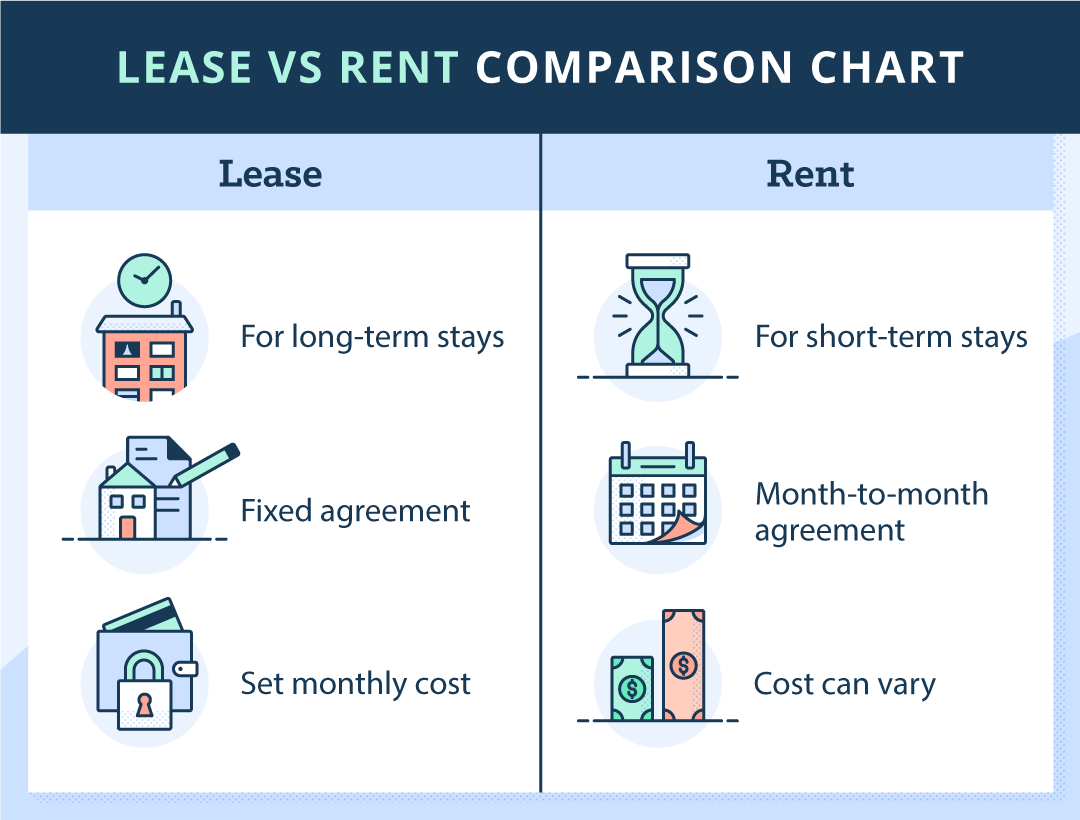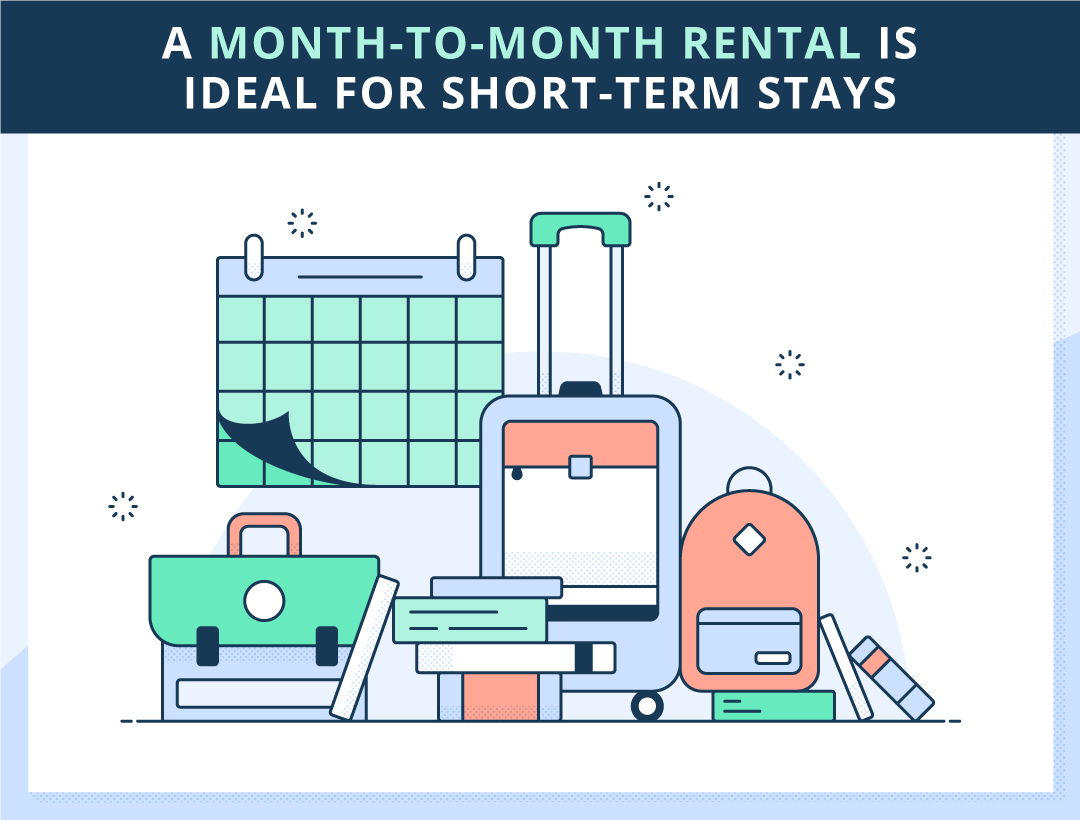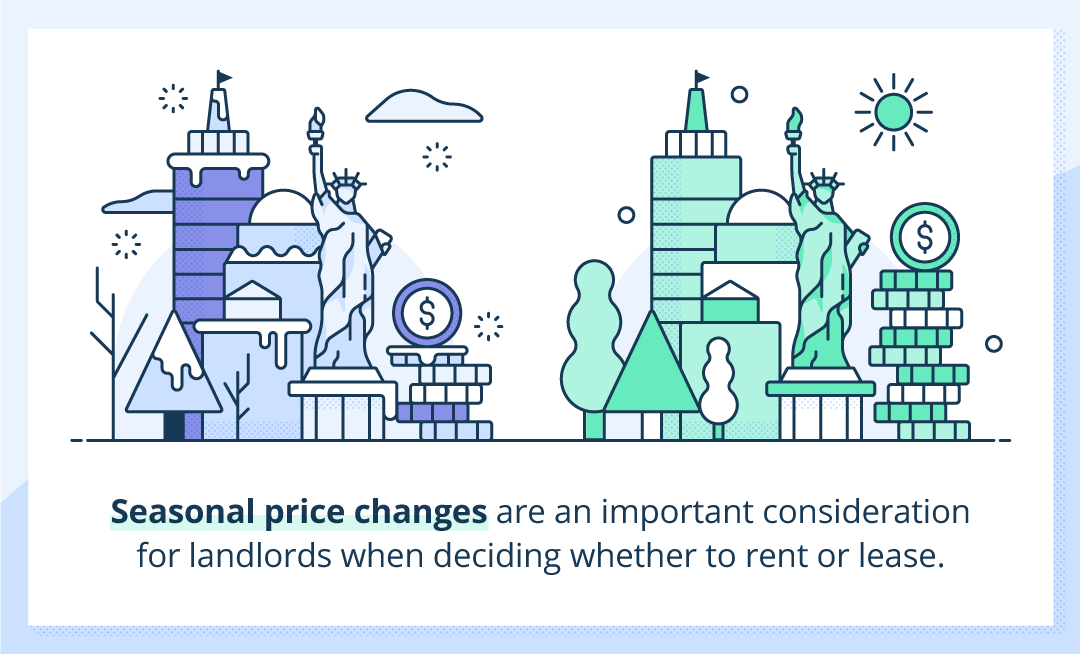9 min read
How to Get Property Management Clients (Lead Gen Methods)
With such a competitive and fast-paced real estate market, especially rental markets, knowing how to get property management clients is crucial for starting and...

The difference between buying and renting is obvious, but what exactly is the difference between someone looking to lease vs rent? The two terms do overlap in many aspects, but there are important differences to be aware of when entering into a lease agreement. When deciding whether to lease vs rent a property, it is crucial to understand these distinctions and weigh the pros and cons of each.
Before we get into the details of the difference between leasing vs renting, it’s a good idea to understand the definition of a lease agreement. A lease agreement is a legally binding contract between a renter and a landlord that outlines the terms and conditions of the rental agreement. Lease agreements will have a variety of sections such as basic information about the rental, pet policies, smoking policies, and other house rules that a landlord might have for a property – check out our blog for more details about what is on a standard lease agreement.
The specific terms and conditions of lease and rental agreements tend to differ, with the most common difference being duration. A lease is generally a long-term fixed agreement, whereas a rental tends to be short-term (less than six months) and terms can vary month-to-month. A standard lease agreement is for one year, but the duration can be longer or even as short as six months depending on what a landlord chooses to offer.

Like with most things in life, there are pros and cons to each. But, it is important to note that what may appear as a positive for one person, may actually be considered a drawback for others. Deciding whether to lease vs rent is very dependent upon an individual’s personal situation and preferences. Some people like commitment and stability while others fear it, which is one reason why some choose to lease while others prefer to rent.
Pro Tip: Take the stress out of the moving process by hiring local movers to do the heavy lifting. For more helpful services, check out our Renter’s Toolkit.
Leasing makes the most sense for someone who is looking for a long-term place to stay: think at least six months. Also, if an individual isn’t quite ready to purchase a place, but it is something that they are thinking about, then leasing with an option to buy may be appealing.
This could be ideal for a young family who is relocating for a new job. They may want to ensure the new job will work out long-term before purchasing a home, but also want to avoid having to move again in the relatively near future if the job does stick. It is also relatively easy to renew a lease, which is ideal for individuals who are satisfied with their current situation.

Renting is ideal for individuals looking for a short-term stay. Someone who is looking to stay somewhere for less than six months should consider this option as lease contracts are generally for one year. A student, for example, who has a summer internship in a city away from campus or home certainly would not want to sign a year-long lease. Another common situation is someone staying in a short-term vacation rental for longer than just a quick stay. Renting gives tenants the flexibility to leave when they need to.

Like with tenants, there are advantages and disadvantages to leasing vs renting for landlords. A drawback to renting is that a landlord may have to frequently find and evaluate new tenants. However, an advantage is that renting gives landlords the flexibility to raise and lower rent month-to-month. This can be very beneficial in certain areas where rent prices tend to significantly vary by season. For example, the average cost of a two-bedroom apartment in Los Angeles was $2,409 in December 2020, but in the summer was around $2,993. The reason for this is that people, particularly in bigger cities like L.A., tend to move during the summer and rent prices are largely driven by supply and demand. This is becoming even more prevalent as remote work becomes popular which spurs renters to move to different places for shorter periods of time.
Essentially, leasing relieves landlords from the extra work of finding and evaluating new tenants, but it does not allow for the flexibility of rent change like a month-to-month rental agreement would. If you’re deciding whether you want to lease or rent as a landlord, make sure you evaluate your investment goals and determine how you can get the best return on your investment for a particular property.
Subleasing, or subletting, is when the person on a lease finds a new individual to pay the monthly rent. There are many reasons why an individual would not want to or simply cannot stay in the place they are leasing for the full duration of the agreement. Likely, they will want to find someone to take over the monthly payments. It is important to know, however, that the original tenant is ultimately responsible for the new tenant. This is why screening prospective tenants is so important. If a subtenant does not pay rent the landlord will be coming to the original tenant for that payment.
Not all landlords allow subletting, so be sure to note if this is an option or not in the lease agreement. Subtenants will also want to ensure they are occupying the space legally and are aware of the terms and conditions of the lease agreement. Any new tenant will be required to abide by the same rules as the original tenant. For our full guide on subleasing, read our guide here.
Landlords and prospective tenants can make rental and lease agreements orally. Although oral agreements tend to be less complex, simpler is not always better. Although oral agreements are binding and legally enforceable, it is more challenging to enforce an oral agreement than one that is in writing.
Honest disagreements can occur down the line about the exact terms of the contract. A renter may decide to adopt a dog, but not recall that pets are actually prohibited. Even worse, one party can more easily take advantage of the other when a contract is made orally. For example, if a tenant has to relocate unexpectedly they may try to claim that a lease contract was only for six months even though the agreed-upon duration was a year.
In order to avoid these types of issues, it is better to put lease and rental agreements in writing. This way the terms are clear to both parties, and it is easier to settle any potential disputes – remember, once a lease is signed it is legally binding, any lease violation could mean landlords have the right to file for an eviction.
Renters should always consider their situation and long-term goals when deciding whether to rent vs lease. For landlords, always keep your investment goals in mind and when it comes time to either rent or lease, always screen your tenants and have them fill out an online rental application so you can protect your investment.
This post was updated Sept. 2022.
9 min read
With such a competitive and fast-paced real estate market, especially rental markets, knowing how to get property management clients is crucial for starting and...
8 min read
Condo property management, on its face, is exactly what it sounds like — overseeing one or many units in a condominium building...
7 min read
Finding the ideal commercial or residential rental property can be challenging for renters, as it may only meet some of their specific...